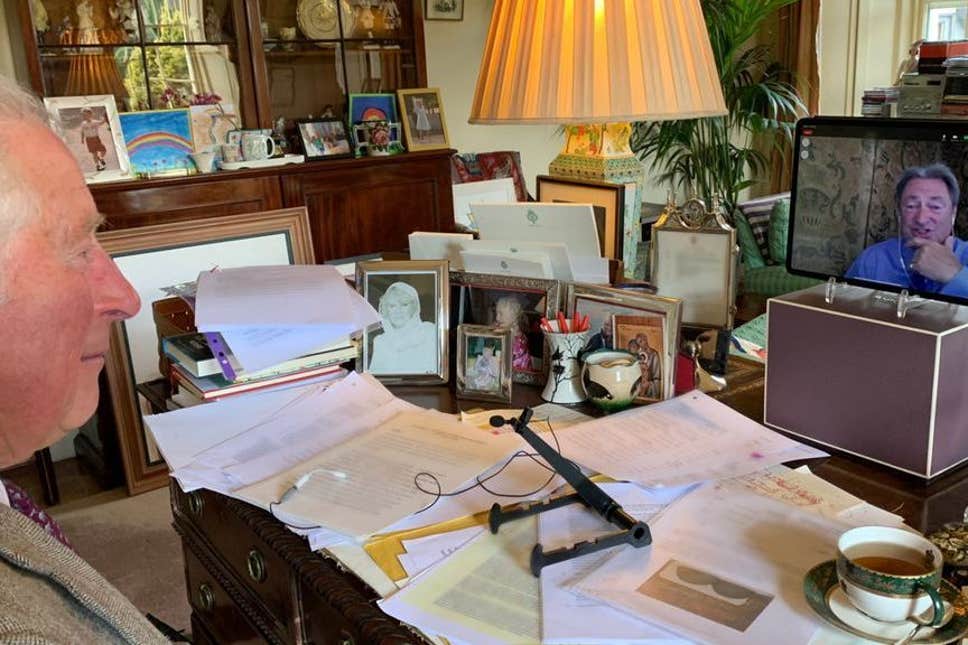May 2020, lockdown in the UK – Prince Charles makes headlines with his desk which is a wonderful example of a perfect feng shui in action. Unfortunately, people and ‘journalists’ who follow Marie Kondo minimalistic, decluttering cult, found it too messy. How wrong they are.
Einstein, famously said, “If a cluttered desk is a sign of a cluttered mind, of what, then, is an empty desk a sign?”
Can feng shui and environmental psychology enlighten us about the significance of the metaphoric representation of desks of famous people? What is the semiotics of office desks?
Personalisation of desks
If your desk doesn’t represent your personality, you might have a problem. I don’t like to give people false problems so ignore this blog – if your desk doesn’t represent who you are. Personal life is about creating yourself and any aspect of your life is an opportunity to express yourself and become more… and that includes your desk.
Studies show that in workplaces, people who personalise their desks are happier, more loyal, work more effectively and have less stress. When you’re surrounded by things you love, you’re naturally more relaxed, energised and focused. Unfortunately, hot-desking strips away this important and beneficial aspect of individuality and character to the detriment of companies. When I feng shui companies I strongly encourage personalisation of desks.
Marie Kondo – ‘Kondoing’
For the record, I’m not completely opposing Marie Kondo’s philosophy of compulsive and obsessive art of tidying up every aspect of our lives. Some of her ideas are actually good. Too much clutter can be bad for you, especially if you can’t find things on your desk. And too much perfectionist cleaning and decluttering can be even more harmful – ie ‘Kondoing’ rule of thumb: discard everything. I definitely don’t agree with her idea of keeping only 30 books at home, at a time – that’s insane and I’m sure late Umberto Eco, who had a library of over 50 000 books would agree with me (I want his library). The more books the better – even if they’re rubbish books. Research suggests that people who have lots of books (and don’t actually read them) are happier than those who don’t have many books. So hit that charity shop and get some books – it’s a very cheap way of boosting your lasting happiness.
Wabi-sabi is an amazing Japanese concept seeing beauty in imperfection which every perfectionist needs to try it from time to time. Also, 80/20 rule (Pareto principle) suggests that if your desk works 80% of the time, then you have a wonderful desk. A bit of mess and clutter is good for you as this book on A Perfect Mess: The Hidden Benefits of Disorder-How Crammed Closets, Cluttered Offices, and On-the-Fly Planning Make the World a Better Place suggests. Everyone who is a perfectionist needs to read this book – it will save you a lot of unnecessary stress.
Semiotics of desks
Semiotics is a study of meaning-making, sign processing, and meaningful communication. Simotics includes concepts, indication, designation, likeness, analogy, allegory, metonymy, metaphor, symbolism, and signification. In large part, feng shui is full of semiotics and meaning-making. Meaning is relative and personal. Meaning can take time to develop. Meaning doesn’t require understanding. Only you can find or create your own meaning – meaning is what you make happen.
For example, when you use the bagua model for your desk (see below), you can place any meaningful objects that represent different aspects of your work. There are ‘universal’ symbols for certain aspects but ultimately you can use anything that makes sense to you and has some value. So, money plants have culturally signified prosperity and wealth so you can put a money plant on your desk to boost your wealth. But if your kids mean wealth to you – you can put a photo of your kids and it will work the same way. Feng shui = intention/outcome + energy/relationship + ritual/symbol.
Agency or control of one’s life is one of the most important aspects of life. Ability to handle complexity and chaos is an essential skill in times of radical uncertainty. Desks allow for experimentation and testing this ability of managing a delicate balance between clarity and clutter.
Clutter and hoarding
How easy is it for you to find things on your desk? If it’s easy, then you don’t have clutter and you’re not a hoarder. If you can’t find things on your desk or workplace – you may need to consult this book: Conquer the Clutter: Strategies to Identify, Manage, and Overcome Hoarding by Elaine Birchall, Suzanne Cronkwright
Semiotics of Prince Charles’ desk
In this photos of Prince Charles being interviewed by Alan Titchmarsh for Classic FM at Birkhall, his residence on the Queen’s Balmoral estate, his desk includes (from the left) a photograph of grandson Prince George, children’s rainbow paintings, framed photos of Camelia and the Queen Mother, books, four red biros and Clarence house-branded stationary as well as a religious icon. The semiotics of Prince Charle’s desk is very clear – everything has a purpose and meaning. It has almost a fractal order and is definitely interesting. It shows that Prince Charles in control of his desk, therefore his life and it not afraid of complexities of life. The desk has perfect feng shui and it ‘does spark joy’ and I would encourage Prince Charles to resist to ‘Kondo’ his desk.
Desks of famous people
Fortunately, we have photos of desks of famous people which can reveal a lot about their personalities, how they were thinking and their mindsets. Einstein walked his talk and had a desk which wasn’t empty.
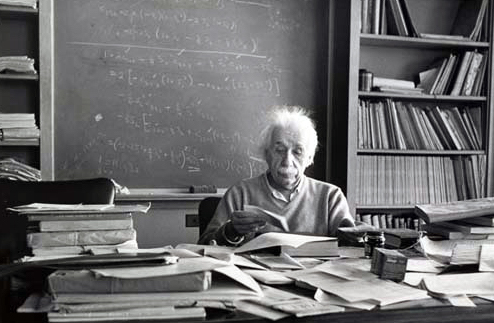
Feng shui of Einstein’s desk
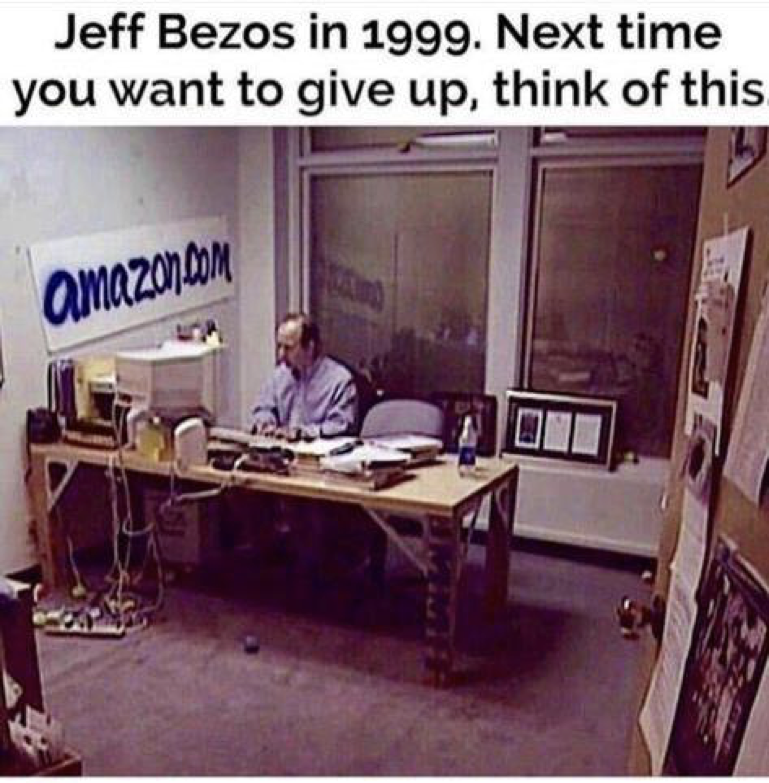
Jeff Bezos master planning his next move… for global domination
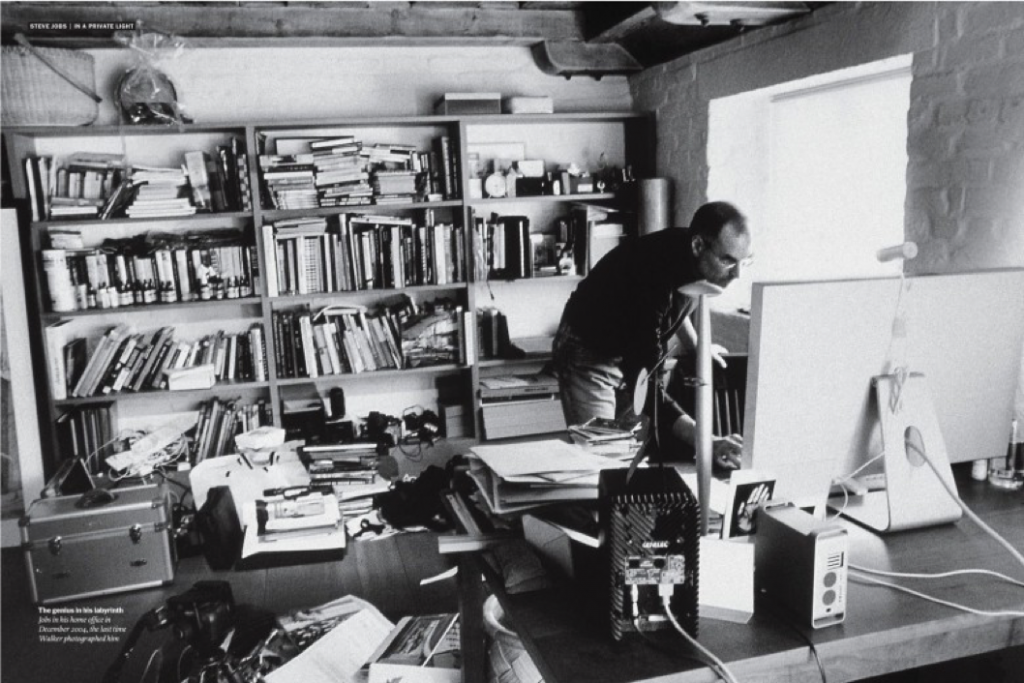
Feng shui of Steve Job’s desk – look at the bookshelves behind him – very impressive and it looks like he’s reading those books
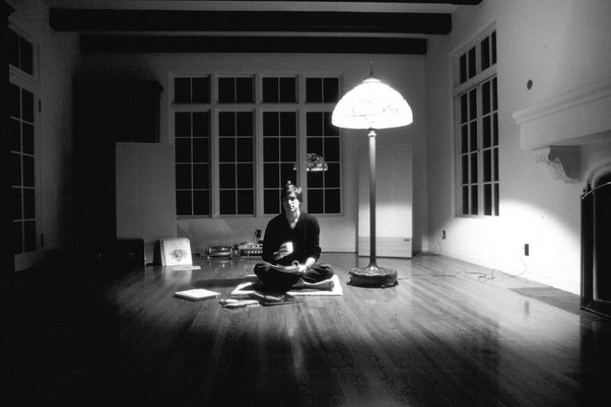
Steve Jobs in his Zen period with a very minimalistic feng shui office – one doesn’t need a desk
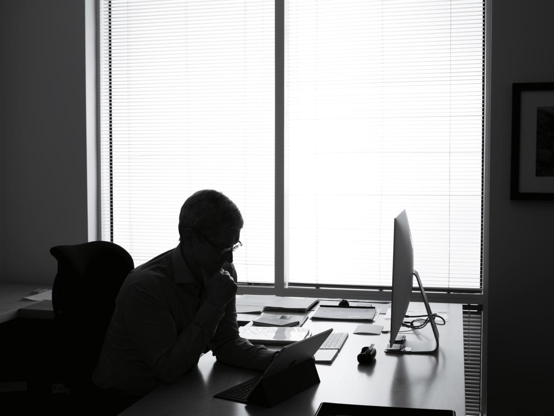
Tim Cook’s perfectionist desk – it takes a lot of effort to keep everything perfectly aligned and under complete control
How to feng shui your desk?
- Make it work for you. It’s your desk. No apologies for being yourself. Cluttered or not – it doesn’t matter. Being organised is simply what it means to you.
- It helps if your desk is ergonomic ie working at your desk shouldn’t be tiring physically. If it isn’t, then have breaks so you change the position of your body frequently. Drinking water helps – you’ll be forced to go to the loo. In the case of Prince Charles’ desk, he positioned his iPad ergonomically ie higher, on the eye level so it’s easier to work with. Read more feng shui tips for working from home
- Lighting is important – you don’t want to strain your eyes.
- Avoid high contrasting colours for your desk ie black or white and glass. Wood is the best material for desks.
- Position your desk in such a way that you don’t get too much glare on your computer screen and ideally have a nice view or window opposite. If you’re facing a wall – hang a picture, photo or poster of a landscape to expand the space. Have something pleasing in front of you.
- Personalise it as much as you can with everything that matters to you and has some value. Photos, trinkets, fun things (very important) and anything else that you like.
- Use the bagua model on your desk – see below – how to use your desk for success at work.
- Don’t get attached to your desk. It’s just a desk. Your mind is the ultimate ‘desk’.
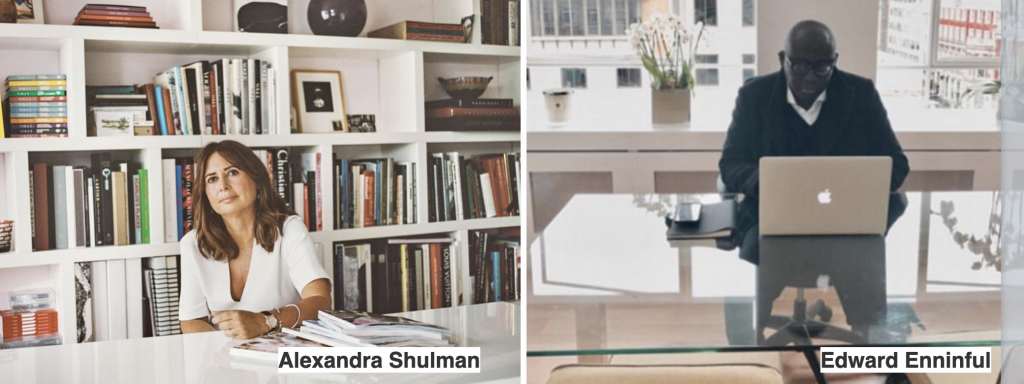
Avoid white or black and glass desks

Arianna Huffington, Huffington Post – 76% of us report that reading makes us happy
and improves our lives – get more books
How to use the bagua model on your desk
A simple and popular model in feng shui is called bagua where you assign different work-related aspects to space. By placing or positioning different symbols or items that have related value, you’ll be priming yourself with the desired outcomes. Feng shui = intention + energy + ritual. Bagua is a simple ritual that you can use to focus on things that matter to you.
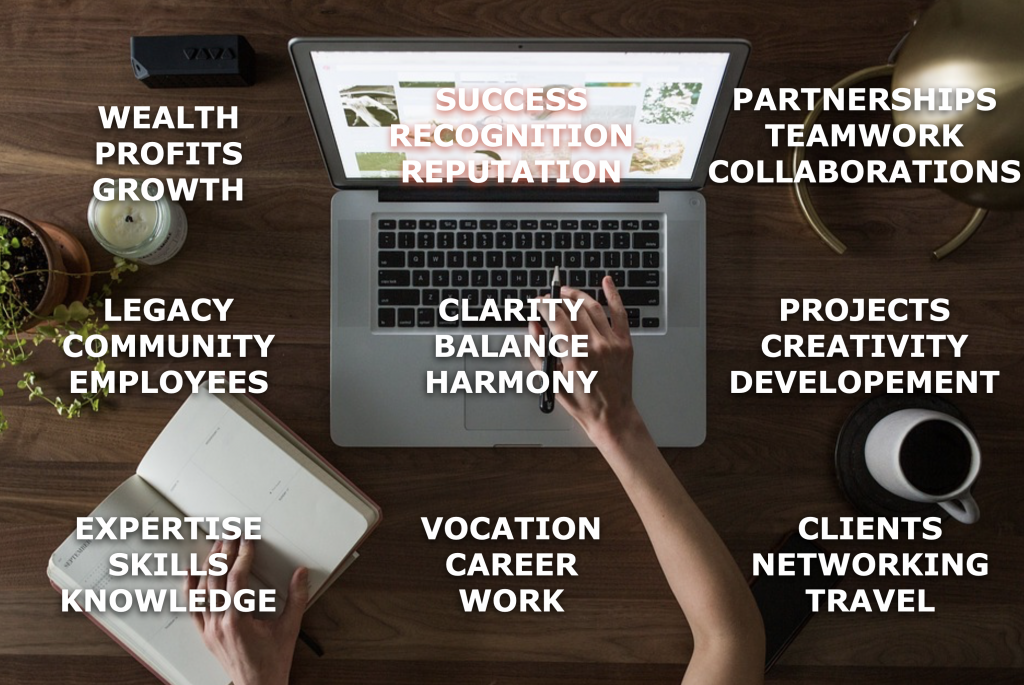
Feng shui bagua of your desk

